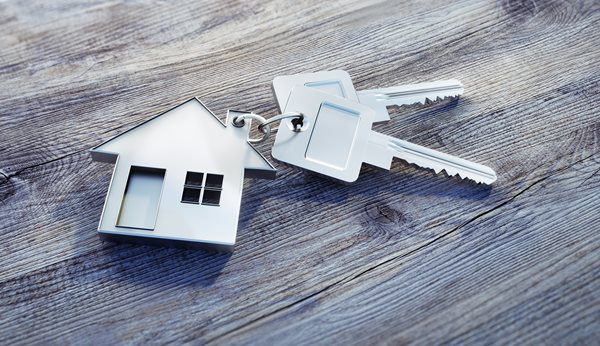Homeownership remains an important goal for most. But many ask, “is it better then renting?” Rental rates continue to rise in the southwest Michigan market due to a short supply of homes. Consider this: with even a modest monthly rent of $750 you would pay $49,000 in rental costs over the course of five years (assuming an annual 5% rental increase, which is common). That is a considerable amount of money, and none of it is building you wealth in the form of equity in a home.
Now consider if you had paid that same $750 on a home valued at $140,000, after five years you would have earned approximately $11,500 in equity (assuming your home appreciated annual at 2%)! Home equity—in case you don’t know—is the current market value of your home minus the amount you owe on it. Your property increases in equity as you pay down the mortgage and as the value of the home rises. In short, the equity in your home is the largest financial benefit to a home owner.
Home ownership continues to steadily rise, and with the average first time home buyer being 32 years old, we thought it would be interesting to talk to one of our own Financial Services Representatives, Justice Blasengame, who recently went through the process and became a first-time home buyer at 21. For Justice and her fiancé, it was an obvious answer to the question of “is it better to buy or rent?”
Here are her six tips when it comes to buying your first home:
1. Make Sure The Costs Work For You
There are going to be a few things to consider before you start in on the path to home ownership. First off, will it fit in your budget? Most experts say you should spend a maximum of 30% of your gross (pre-tax) income on housing.
“We were looking at renting a townhome in Portage but the rent would have been more than what we ended up paying for our home.” Justice told us.
Rising rent can definitely be a factor in deciding to buy a home instead of rent, but you have to make sure that the costs work for you.
2. Understand How Much House You Can Afford
One of the first things you’ll want to do is talk to a mortgage lender to see if you’re in a good place to buy a house. If you can get pre-qualified, you will have a good idea of how much house you can afford, and what mortgage payments might look like.
“We wanted to get a house last year but there were some things to get in order first,” explained Justice. “We needed to develop more credit. We’re younger and didn’t have a strong credit history so we got a credit card and we each already had a car loan. They like to see you have three credit lines open for at least 12 months on your credit report, and we each only had one at the time. Also, we needed to have more time on the current job, you have to have two years working experience without any unemployment gaps.”
“After spending a little time improving our credit history, we were able to get prequalified for a mortgage,” she added. “This gave us a real idea of what we could afford, so we weren’t looking at homes that were outside our budget.”
3. Save, Save, Save
Something you’ll want to start doing—and possibly continue to do after talking to a mortgage lender is to save.
“Save, save, save. You’ll most likely need money for closing costs and in this market we’re in right now, sellers don’t have to pay for closing costs,” Justice said. “It’s usually been about 50-50 where sellers would pay closing costs for buyers, so if you put in an offer and ask for say 3.5% toward closing, and someone else offers the same amount, but doesn’t ask for anything for closing, then they’re going to accept that other offer.”
Regardless of what you have saved for your down payment, it’s important to keep in mind that you’ll need some reserved for inspections, appraisals, and possibly closing costs.
“Thankfully at Arbor Financial, we offer loans with 3% down along with other really nice options for home buyers.” said Justice.
4. Don't Forget to Factor in Insurance & Taxes into Your Monthly Budget
Prospective buyers also need to consider costs like insurance, and property taxes as well, which can affect what you’re paying every month.
“Something most people don’t take into consideration is property taxes.” said Justice. “Same with insurance on a home, a lot of people don’t take that into consideration. If you have a mortgage, then the lender requires you to have insurance to cover it.”
5. Escrow Can Work To Your Benefit
What is escrow? A lot of people get confused with the term, but it’s fairly simple, and Justice tells us from her experience, it can work to your benefit.
Put simply, an escrow account is set up by your mortgage lender to pay property-related expenses. The escrow account is used to pay property taxes, homeowner’s insurance and mortgage insurance (PMI). The money that goes into escrow comes from your monthly mortgage payment. The idea is that this way it’s already taken care of each month, and you don’t have to worry about paying a big property tax bill once or twice a year.
Justice tells us that escrow for taxes and insurance was about $300 per month, and says “it was worth it.”
“For other millennials, even if you don’t have to escrow, I would encourage it, because it is basically forced savings to pay for your insurance and taxes, so it’s not something that you have to think about month to month,” she said.
6. If You Plan On Being in the Area For a While, Definitely Consider the Benefits of Buying a Home
Justice is thrilled with her decision and is proud to be a homeowner, and she encourages others to try to do so as well, especially if you plan on being in the area for a long time.
“We stayed in the exact same apartment for three years. I think about all the money we lost just by paying rent to somebody else, when we could have been building equity in a home. So, go see if you can qualify, and see what you need to do to get there.” Justice said.
If you’re ready to hand the keys back to your landlord and get into your own home, then talking with an Arbor Financial mortgage professional is your first step. We’ll work with you to understand your budget and goals, then suggest the appropriate first-time home buyer program that is right for you!



